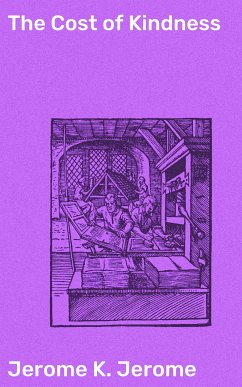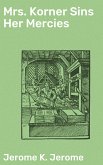In "The Cost of Kindness," Jerome K. Jerome delves into the intricate dynamics of human relationships and the often unrecognized price of compassion. The novella, characterized by Jerome's hallmark wit and keen observational humor, navigates themes of altruism, societal expectation, and the sometimes burdensome nature of benevolence. Set against a backdrop of Victorian sensibility, the narrative not only critiques societal norms but also illustrates the delightful absurdities of life, creating a rich tapestry that resonates with both contemporary and historical audiences. Jerome K. Jerome, celebrated for his comedic mastery in works such as "Three Men in a Boat," brings his personal experiences and reflections on human nature to bear in this poignant exploration of kindness. Drawing from his own encounters in a rapidly changing society, Jerome's biographical context'Äîmarked by both strife and success'Äîinfuses the text with authenticity, revealing his belief in the complexities surrounding altruism. His background and literary prowess lend a multifaceted perspective to the underlying moral inquiries presented in the novella. For readers seeking a blend of humor, social commentary, and philosophical insight, "The Cost of Kindness" is a must-read. Jerome's engaging prose and sharp intellect illuminate the underlying tensions of benevolent actions, making it a profound yet accessible exploration of what it truly means to be kind in a complex world.
Dieser Download kann aus rechtlichen Gründen nur mit Rechnungsadresse in A, B, BG, CY, CZ, D, DK, EW, E, FIN, F, GR, H, IRL, I, LT, L, LR, M, NL, PL, P, R, S, SLO, SK ausgeliefert werden.









